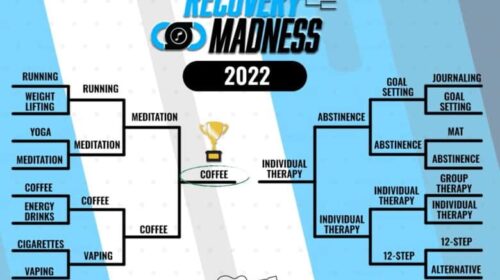Have you ever considered why we make significant changes in our lives?
Suppose you’ve had a substance use problem. In that case, there could be many reasons for wanting or needing to change: family issues, health emergencies, work problems, or legal trouble.
Just like each of us is different, so are our reasons for change. One person’s reason to quit drinking could be because it affects their daily routine. While another person can go on for years with the same issue until ultimately landing in a jail cell motivates them to address their problem.
Change is hard. And there’s much more to it than just waking up one day and deciding you want to do something different.
The 5 Stages of Change
The Stages of Change model was developed to interpret problem behaviors.
1. Precontemplation
At this stage, the person isn’t thinking about changing their life. They may not recognize their behavior as problematic and may see change as unfavorable.
Example:
Using drugs or alcohol without awareness of how harmful it is to yourself and those around you.
2. Contemplation
Here, the person knows about the problem in their life and considers making a change. However, they haven’t decided or taken any steps to start the process.
Example:
You know that your substance use is harmful and that your life could be better, but you are uncertain if you want to take the necessary steps to do anything about it.
3. Preparation
During this stage, they haven’t been successful with changing in the past but are committed to making small steps toward a better life.
Example:
Researching your options for treatment or talking to a professional about changing your behavior.
4. Action
At this stage, the person actively attempts to change their environment and behavior, which requires time and energy commitment.
Example:
You are in treatment for your substance use disorder. You are active with therapy and have begun to mend your relationships.
5. Maintenance
Here, they’ve made the necessary changes and are maintaining those changes. The period for this stage is six months and after.
Examples:
Attending recovery meetings, talking to a sponsor or friend regularly, going to therapy, and committing to your long-term treatment plan.
Motivations for Change in Recovery
Feeling good
Feeling good is greatly underestimated.
Many people addicted to drugs or alcohol don’t realize how much better they could feel if they got help for their addiction. But it’s easier said than done.
Feeling good alone isn’t enough. What can be most challenging for those contemplating treatment is that if you need to detox, you must feel worse before you start feeling better.
Looking good
It’s not all about looks, but getting drugs and alcohol out of your life will improve your self-care habits and motivate you to make better choices.
Without substances to hold you back, you’ll be more inclined to take better care of yourself. You’re more likely to shower regularly, get enough sleep, eat better, and care for your overall well-being.
Better relationships
Many people in recovery feel shame and regret over past situations. Thehir substance use may have caused issues with friends or in their marriage, or they may have little or no involvement with their children.
Getting treatment or therapy to work through your substance use disorder can affect you and those around you. Actions speak louder than words. Show your family and friends you’re willing to work on yourself. They will be more inclined to invite you back into their lives.
Unfortunately, you can only do so much. Some relationships will never be mended. But if both people are willing to work together, there is hope.
Mental wellness
Recovery offers many positives. Experiencing an improvement in your mental well-being is a significant one.
Waking up without a hangover or a drug-induced haze is a great motivator. Without substances, you have more energy, drive, and a desire to do the big life things you’ve always wanted.
Your decision-making skills aren’t foggy anymore. You can implement what you learned in treatment into your daily life.
More time
Activities surrounding drugs or alcohol take so much time that there isn’t room for other, more beneficial things in your life.
The extra time in recovery presents a challenge for some. Suddenly there is more time but nothing to fill it, which can lead people to relapse or find other unhealthy hobbies. Finding a community of people in recovery and creating new routines for yourself are critical.
Ask Yourself, “Is There a Better Way?”
Your motivation to change doesn’t matter if you want to change badly enough. Consider if how you’ve been living works for you or if there is a better way.
Getting help from your substance use disorder is no magic solution for life, but anything is possible with continued work and a commitment to your recovery.
Let Recovery Unplugged help you. Call us at 1 (855) 975-1757 to learn more about our treatment options and to get started on your journey.

























